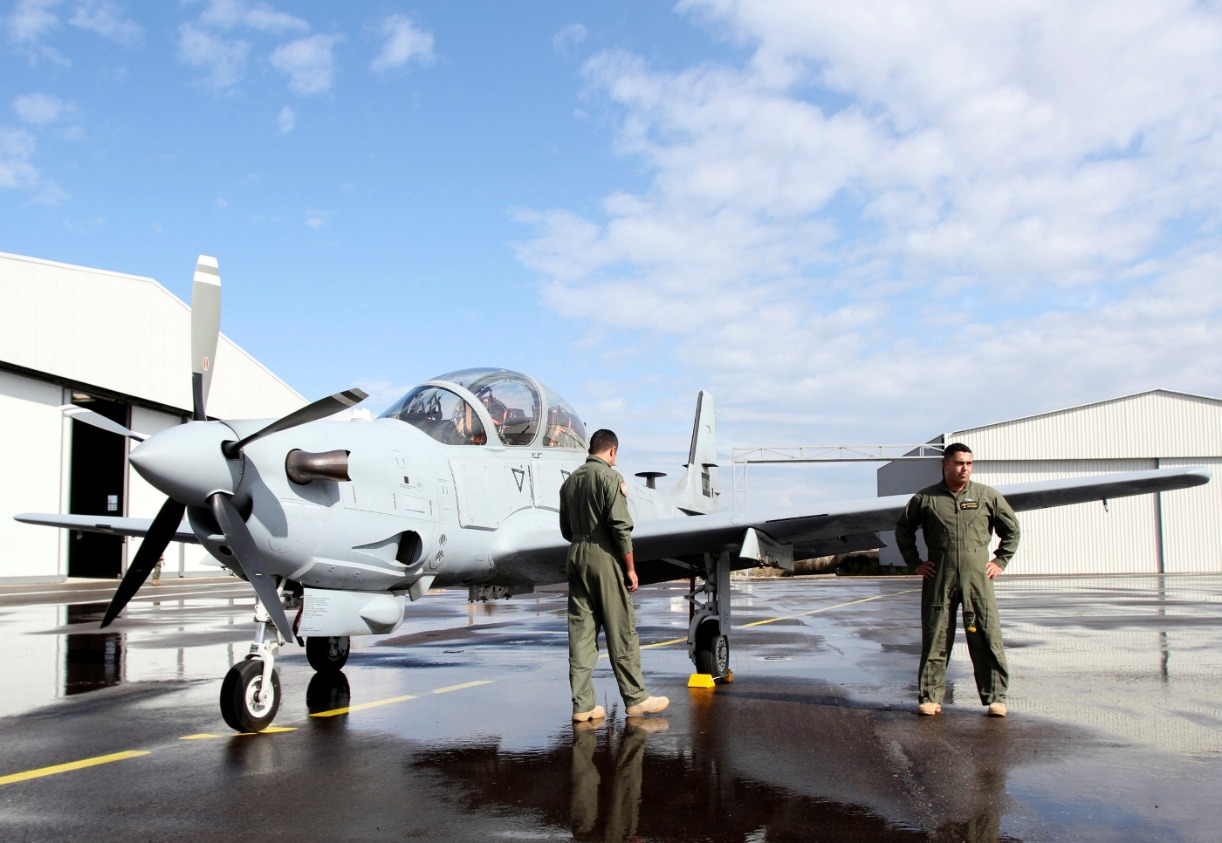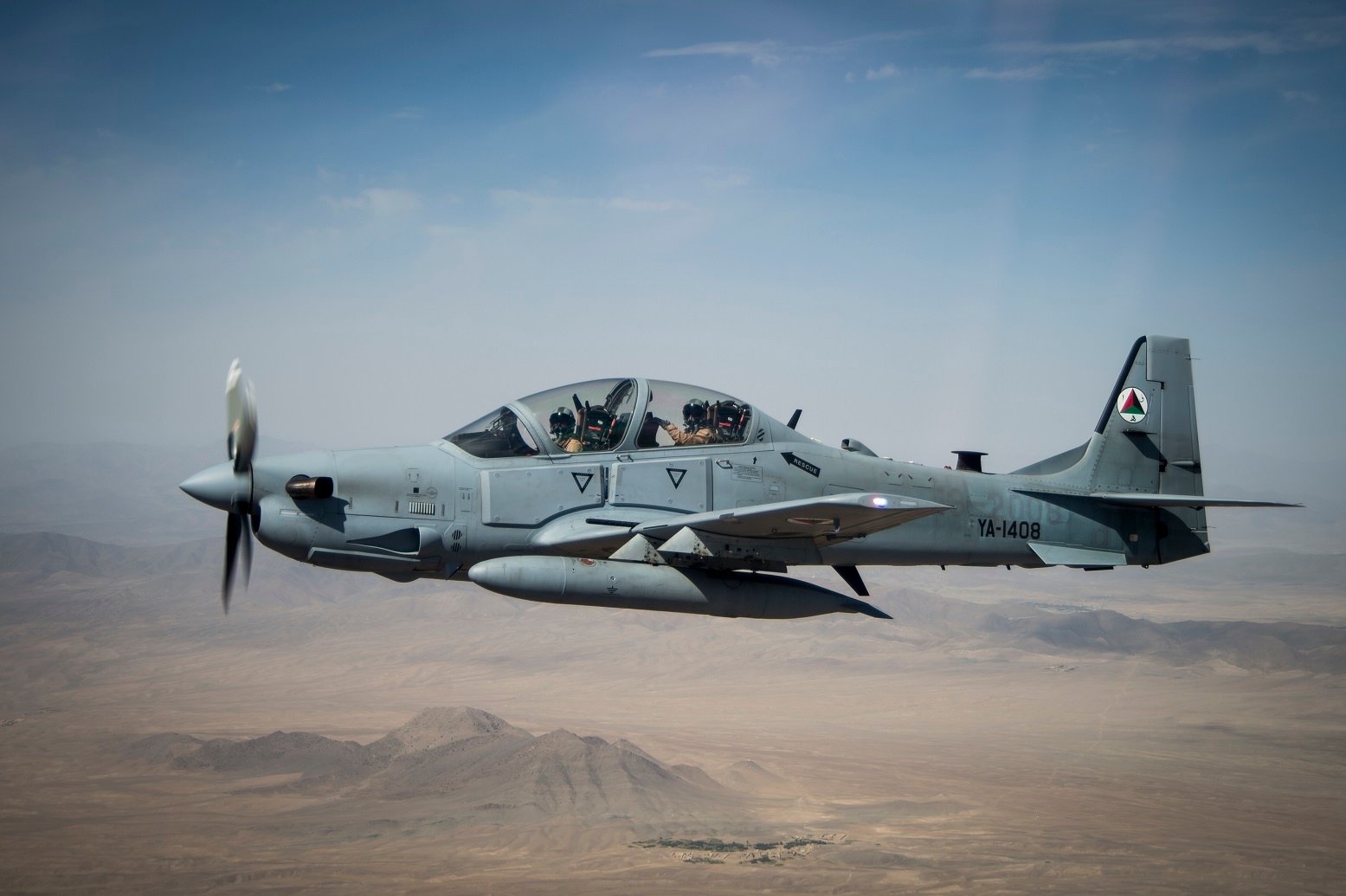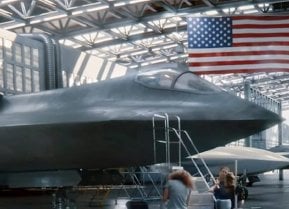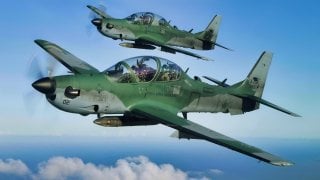What Makes the A-29 Super Tucano a Possible A-10 Warthog 'Killer'
Portugal is considering the Embraer A-29 Super Tucano light attack aircraft for its Air Force, aiming to acquire 8-12 units for close air support (CAS), intelligence, surveillance, and reconnaissance (ISR) missions, and advanced pilot training. This decision is part of Portugal's "Air Force 5.3" modernization plan.
Summary and Key Points: Portugal is considering the Embraer A-29 Super Tucano light attack aircraft for its Air Force, aiming to acquire 8-12 units for close air support (CAS), intelligence, surveillance, and reconnaissance (ISR) missions, and advanced pilot training. This decision is part of Portugal's "Air Force 5.3" modernization plan.

-The A-29, although a turboprop, is a relatively modern design, having entered service in the early 2000s and accumulated 60,000 combat hours across 16 nations.
-It’s seen as a potential replacement for the A-10 Thunderbolt II in low-intensity and counter-insurgency CAS missions due to its loiter time, multi-place cockpit, and ability to operate from austere airfields.
Portugal Eyes Embraer A-29 Super Tucano for Air Force Modernization
Multiple NATO members and partners are looking to adopt advanced combat aircraft including the Lockheed Martin F-35 Lightning II, the Eurofighter Typhoon, and Saab JAS-39 Gripen – or at least combat-proven jet fighters like the F-15 Eagle and F-16 Fighting Falcon.
However, Portugal isn't looking at any of those advanced warbirds and instead could adopt the Embraer Defense & Security A-29 Super Tucano light attack turboprop aircraft.
According to international military analyst firm Janes, Portuguese Minister of National Defence, João Nuno Lacerda Teixeira de Melo announced at the National Defence Commission of the Portuguese Parliament that his nation's air force was considering the light aircraft. Lisbon will likely obtain between eight and 12 of the fighters.
"The Portuguese Air Force is eying an aircraft with the capability to carry out close air support (CAS) and intelligence, surveillance, and reconnaissance (ISR) missions in theatres of operations with limited infrastructure, as well as advanced pilot training," Janes reported.
Portugal has sought the aircraft as part of its "Air Force 5.3" modernization plan, which calls for the acquisition of more capable aircraft.
Though it is a turboprop aircraft, the A-29 Super Tucano was developed in the 1990s and only entered service with the Brazilian Air Force in the early 2000s. As an aircraft design, it is far newer than the F-15 or F-16.
Could it Replace the A-10 Thunderbolt II?
The A-29 Super Tucano isn't likely to hold its own against those other aircraft, but it's not a frontline fighter. Still, it has amassed 60,000 combat hours and is now in operation in the air forces of 16 nations. It can operate from austere airfields and could be employed in close air support (CAS) missions as it is armed with twin .50 caliber machine guns on each wing along with five hardpoints for ground attack munitions.

As Maya Carlin wrote previously for The National Interest, the capabilities of the A-29 Super Tucano have made it a potential replacement for the Fairchild Republic A-10 Thunderbolt II currently in service with the United States Air Force.
"The A-29 is a more than suitable candidate to replace the A-10. The A-10 is not suited to operations in a contested airspace against a peer or near-peer adversary therefore its primary use is in low-intensity and counter-insurgency CAS. For those missions, the loiter time of the A-29 combined with its multi-place cockpit make it an ideal platform," Carlin noted, adding, "The longer the A-29 can remain on station, the longer it can support ground assets. Additionally, the value of having two aircrew to maintain situational awareness in a dynamic CAS environment cannot be understated."
The A-29 doesn't have the main gun of the A-10, but its small size, as well as small visual and radar signatures could make it a viable replacement for the Thunderbolt II. Lisbon is already sold on it, as are more than a dozen other nations. Perhaps the U.S. Air Force will take another look at the small Brazilian lightweight fighter.
Author Experience and Expertise: Peter Suciu
Peter Suciu is a Michigan-based writer. He has contributed to more than four dozen magazines, newspapers, and websites with over 3,200 published pieces over a twenty-year career in journalism. He regularly writes about military hardware, firearms history, cybersecurity, politics, and international affairs. Peter is also a Contributing Writer for Forbes and Clearance Jobs. You can follow him on Twitter: @PeterSuciu. You can email the author: [email protected].
All images are Creative Commons.


